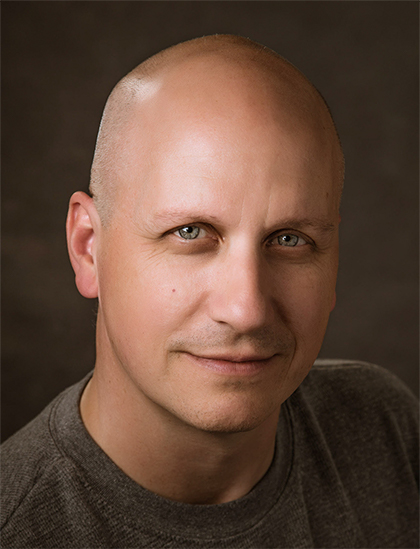There is a crack in everything,
that’s how the light gets in.
— Leonard Cohen
Learning To Let Go
Our biggest challenge in life is learning to let go. Even at the very end, many never learn who they really are and suffer immense pain as the journey comes to a close. Our experiences are the lessons, and very often their transformative message remains hidden behind a vail that must be lifted before we can decode their truth.
Many go through life largely unaware of how the present has been shaped by the stories of the past. We painfully repeat patterns that add drama to the mystery of why we do what we do. Counseling is one tool that can help unravel the mystery and illuminate who you really are.
Welcome
Hi, I’m John Fitzgerald, a Licensed Professional Counselor practicing for the past twenty-five years. During my time in the trenches I have learned that relationship is everything. How we engage, trust, learn, laugh, cry, and work together to solve the mysteries of your suffering is the key to healing. I believe counseling is a process of helping you find what you already have and remember what you already know.
Services
I offer individual and couples counseling mostly done virtually. While I had an office for several years and always enjoyed being with people in-person, teletherapy offers many advantages. I can be more flexible in scheduling appointments, you can engage in sessions wherever you please, and most of all, outcomes in my experience are as good if not better than in-person.
I also do consultations that occur over a brief number of sessions. They tend to be focused on resolving a particular issue and sometimes involve making referrals to higher-levels of care (residential/inpatient). Because I have been doing this work for some time, I know a lot of people and treatment programs I can access for help.
Since Oregon legalized use of psilocybin under certain conditions, I am offering counseling specific to preparation and integration. If you have questions about these services, please reach out and we can discuss further.
Fees
My rate for all counseling is $200/hour and I usually use Square for payment. While I don’t accept any form of insurance, I’m happy to provide a receipt (super bill) for all sessions that you can submit to your insurance provider for potential reimbursement. I encourage you to check with your provider before engaging in sessions to understand your coverage.
“It is by going down into the abyss that we recover the treasures of life. Where you stumble, there lies your treasure.”
— Joseph Campbell
Frequently Asked Questions
-
What do you specialize in treating?
My clinical expertise is working with adults struggling with a range of behavioral health challenges involving relationships, trauma, depression/mood, anxiety and addiction. You should know that I am not a fan of formal diagnosis and believe most symptoms serve adaptive functions.
-
Why should I come see you?
Seeing any counselor takes courage because it means opening yourself to the process of self-exploration, to uncovering the unknown. Why might this be scary? Because as Robert Bly so eloquently put it, "We spend our life until we're twenty deciding what parts of ourselves to put into the bag and we spend the rest of our lives trying to get them out again."
What goes into the bag is different for everyone, but it tends to be the stuff we want to disown, forget, or that taps into grief and shame. Going into a dark bag can be scary when you're not exactly sure what you're going to find. But we all carry a bag and the more that goes in it, the heavier our load in life. Therapy is about lightening the load and doing it in a safe and productive way.
-
How do you help me change?
While not unique to say among therapists, the counseling I do is always individualized. There are no one-size-fits-all approaches to addressing the complexities of life. In general, healing occurs from a mix of talk therapy to facilitate understanding and insights, and somatic approaches to more fully integrate feelings in the body.
-
What are your credentials?
- PhD, Systems Science & Social Psychology, Portland State University, Portland, Oregon, 2007
- MS, Counseling Psychology, Lewis & Clark College, Portland, Oregon, 1998
- BS, Marketing & International Business, University of Oregon, Eugene, Oregon, 1989
- Licensed Professional Counselor (LPC), C-1322 (2001-Current)
Let’s Talk
Counseling is a significant investment which is why I offer an initial no-charge consultation to determine if we are a good fit. If we are, then I’ll have you sign some forms, and we’ll schedule our first appointment. If not, then I’ll do my best to refer you to a colleague.
You can reach me by phone (503-343-5666) or by emailing at: drjohnfitz@pm.me.

